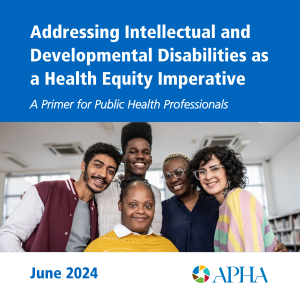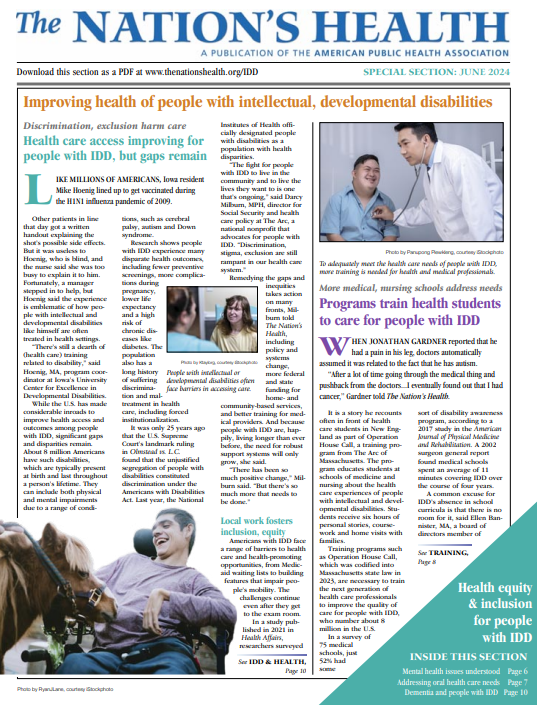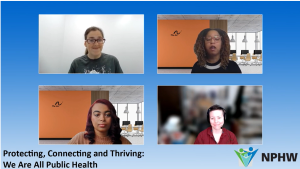Disability and Health
Why is disability a health equity issue?
 Adults with disabilities are more likely to have health problems like heart disease and diabetes than adults without disabilities. They also have more barriers to health care: they are less likely to have a usual health care provider, more likely to have unmet health care needs due to cost and are less likely to get yearly check-ups.
Adults with disabilities are more likely to have health problems like heart disease and diabetes than adults without disabilities. They also have more barriers to health care: they are less likely to have a usual health care provider, more likely to have unmet health care needs due to cost and are less likely to get yearly check-ups.
When individuals with disabilities do not receive the support they need, they face significant obstacles to health-promoting services. Although the Americans with Disabilities Act established in 1990 that is it illegal to discriminate against a person with a disability, many systems that promote health are still not accessible for many with disabilities. These systems, like public transportation, quality education and housing, and quality medical care are crucial to the public health system that supports each person’s right to live and thrive.
Intellectual and Development Disabilities
Intellectual disabilities are limitations in intellectual functioning and adaptative behavior. Developmental disabilities result in functional limitations related to major life activities, such as communication, mobility and/or learning.
Both intellectual and developmental disabilities occur before age 22.
Our Work on Intellectual and Developmental Disability
APHA is proud to leverage our extensive network of public health professionals to center the experiences of people with intellectual and developmental disabilities in broader conversations and strategies to advance health equity for all.
Our work is supported in part by the Special Olympics Systems Change for Inclusive Health subgrant, funded by the Centers for Disease Control and Prevention.
Anniversary of the ADA:
Enacted on July 26, 1990, the Americans with Disabilities Act has been a beacon of hope and a testament to our collective commitment to creating a society where every individual, regardless of their abilities, has the opportunity to thrive.
As APHA recognizes this important day, we reflect on the progress we have made and the work that still lies ahead. Inclusion and accessibility are not just legal requirements—they are moral imperatives. Every day, we have the chance to contribute to a culture of respect, understanding and support for people of all abilities.
Contact Us
If you would like to learn more about APHA’s work advancing health equity for people with disabilities, please contact our Center for Public Health Policy at [email protected]











